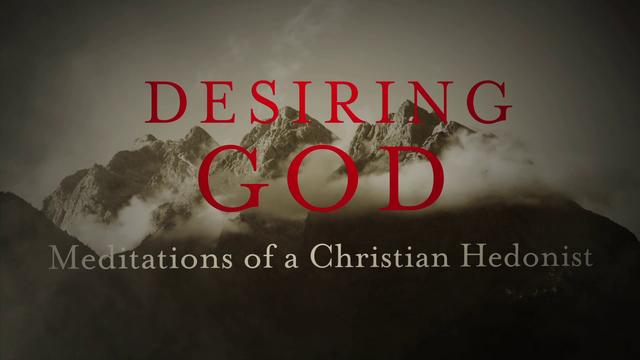The following are a number of significant quotes from John Piper’s seminal book, Desiring God. All of these are from chapter one; the chapter our church is discussing during our Mid-Week Fellowship tonight. I put a few of my thoughts in brackets and italics. Sorry, no page numbers – I’m using my kindle app.
The ultimate ground of Christian Hedonism is the fact that God is uppermost in His own affections: The chief end of God is to glorify God and enjoy Himself forever.
…we are more accustomed to think about our duty than God’s design. And when we do ask about God’s design, we are too prone to describe it with ourselves at the center of God’s affections. [I would say that we are more accustomed to think about our duty to the exclusion of God’s design; merely thinking on God’s design won’t do the trick either].
God’s saving designs are penultimate, not ultimate….The bedrock foundation of Christian Hedonism is not God’s allegiance to us, but to Himself. [Not to say that God’s saving designs are less important in the grand scheme. But his saving purposes have an end beyond themselves, namely, bringing God glory – and those saving purposes are essential to that end.]
“Our God is in the heavens; he does all that he pleases” (Psalm 115:3). The implication of this text is that God has the right and power to do whatever makes Him happy. That is what it means to say that God is sovereign….if none of His purposes can be frustrated, then He must be the happiest of all beings.
The hardened disobedience of men’s hearts leads not to the frustration of God’s plans, but to their fruition.
God’s sovereignty over men’s affairs is not compromised even by the reality of sin and evil in the world. It is not limited to the good acts of men or the pleasant events of nature. The wind belongs to God whether it comforts or whether it kills.
God’s overwhelming passion is to exalt the value of His glory. To that end, He seeks to display it, to oppose those who belittle it, and to vindicate it from all contempt. It is clearly the uppermost reality in His affections. He loves His glory infinitely.
If He did not take infinite delight in the worth of His own glory, He would be unrighteous.
All the different ways God has chosen to display His glory in creation and redemption reach their culmination in the praises of His redeemed people.
Because God is unique as an all-glorious, totally self-sufficient Being, He must be for Himself if He is to be for us.
If God should turn away from Himself as the Source of infinite joy, He would cease to be God. He would deny the infinite worth of His own glory. He would imply that there is something more valuable outside Himself. He would commit idolatry.
What could God give us to enjoy that would prove Him most loving? There is only one possible answer: Himself! If He withholds Himself from our contemplation and companionship, no matter what else He gives us, He is not loving….God is the one Being in all the universe for whom seeking His own praise is the ultimately loving act.
When He does all things “for the praise of His glory,” He preserves for us and offers to us the only thing in all the world that can satisfy our longings. God is for us! And the foundation of this love is that God has been, is now, and always will be for Himself.
The climax of His happiness is the delight He takes in the echoes of His excellence in the praises of the saints. This praise is the consummation of our own joy in God. Therefore, God’s pursuit of praise from us and our pursuit of pleasure in Him are the same pursuit.







